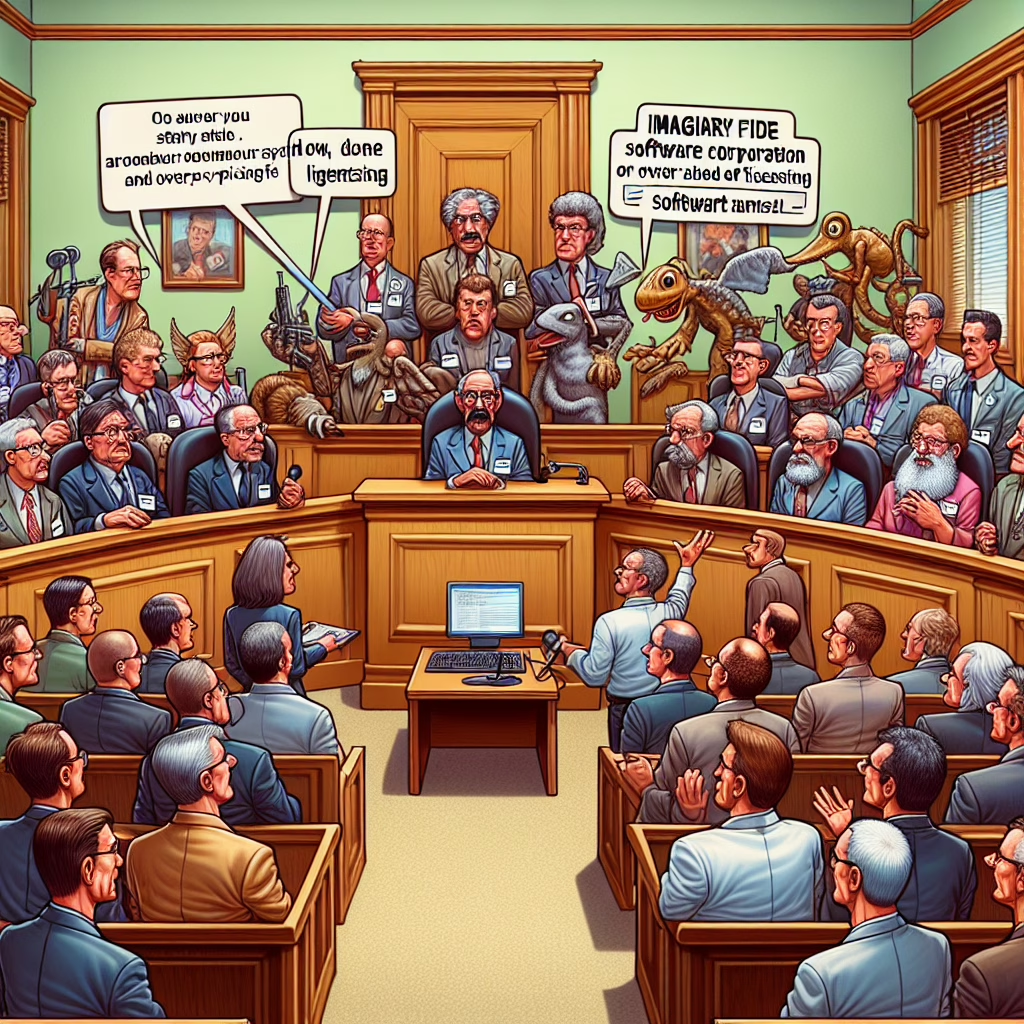In a world where tech giants often seem like they’re playing Monopoly with our wallets, Microsoft has just rolled a double in the game of legal claims! Yes, you heard it right—Microsoft is under fire once again, this time for allegations of restrictive licensing and, wait for it… overcharging! Grab your popcorn as we dive into this legal drama that’s more entertaining than a sitcom.
What Are the Allegations Against Microsoft?
According to multiple sources, the latest legal claim suggests that Microsoft has been playing a bit too rough with its licensing practices. The company stands accused of making it increasingly difficult for users to access its products unless they fork over hefty sums. This suggests that if you’ve ever felt like you needed a second mortgage to afford Microsoft Office, you might not be imagining things!
The crux of the issue revolves around the notion of restrictive licensing. In simpler terms, some users feel that Microsoft has set up barriers that complicate switching software or utilizing products without jumping through hoops—or paying exorbitant fees. It’s akin to trying to leave a party where the host insists you finish all the snacks before you can exit.
The Great Overcharging Debate
Now, let’s talk about the elephant in the room: overcharging. If you’ve ever clicked “buy” on a Microsoft product and felt your wallet scream in agony, this claim might hit uncomfortably close to home. The accusation suggests that Microsoft charges customers significantly more than what’s reasonable, almost as if they’re saying, “Sure, you can use our software—just don’t mind the price tag that comes with it!”
But hey, it’s not all doom and gloom! This situation could serve as a wake-up call for consumers everywhere. With various alternatives sprouting up like weeds in springtime, users now have choices! If Microsoft prices itself out of reach, there are plenty of other fish in the digital sea ready to offer competitive pricing and user-friendly licenses.
What Does This Mean for Users?
The implications of these allegations could be huge! If Microsoft ends up losing this case (fingers crossed for justice!), it could lead to changes in how they structure their pricing and licensing agreements. Imagine a future where users actually feel good about purchasing software instead of feeling like they’ve just participated in an expensive auction.
Moreover, the restrictive licensing practices might undergo significant scrutiny. If this lawsuit gains traction, it could open doors for more transparent and fair practices across the tech industry. Who knows? Maybe one day we’ll look back on this moment as a pivotal turning point in tech consumer rights!
A Silver Lining?
While it might be easy to view these allegations against Microsoft as just another chapter in the book of corporate misdeeds, let’s take a moment to appreciate the potential silver lining here. Increased competition could lead to better products at more reasonable prices! And who doesn’t love a good bargain?
- More Options: As competitors step up, consumers will get a wider range of choices.
- Pricing Pressure: Competitive pricing can force companies to reevaluate what they charge.
- Consumer Feedback: Companies may become more receptive to customer opinions, improving the overall consumer experience.
Furthermore, we might also see tech companies becoming more responsive to customer feedback. If users rally together (perhaps with some digital torches and pitchforks), companies will have no choice but to listen—or risk being left behind in the dust.
The Tech World Needs Change!
This situation highlights a broader issue within the tech landscape: consumers want change! We’re no longer living in an era where we accept whatever a company throws at us because “that’s just how it is.” Each fresh allegation against companies like Microsoft serves as a reminder of consumer power and how their voices matter.
So what can we learn from this? Well, if you find yourself feeling ripped off by software pricing or licensing agreements, don’t sit quietly! Speak up! Share your thoughts on social media or forums. Let’s collectively advocate for better practices across all technology companies.
If nothing else, keep your eyes peeled for updates on this case; it promises to be more riveting than any courtroom drama you’ve binge-watched lately!
If you’ve got thoughts on this juicy topic—or perhaps tales of your own experiences with software pricing—feel free to share them below! Let’s get this conversation rolling!
Special thanks to TechRadar for bringing this story to light!

